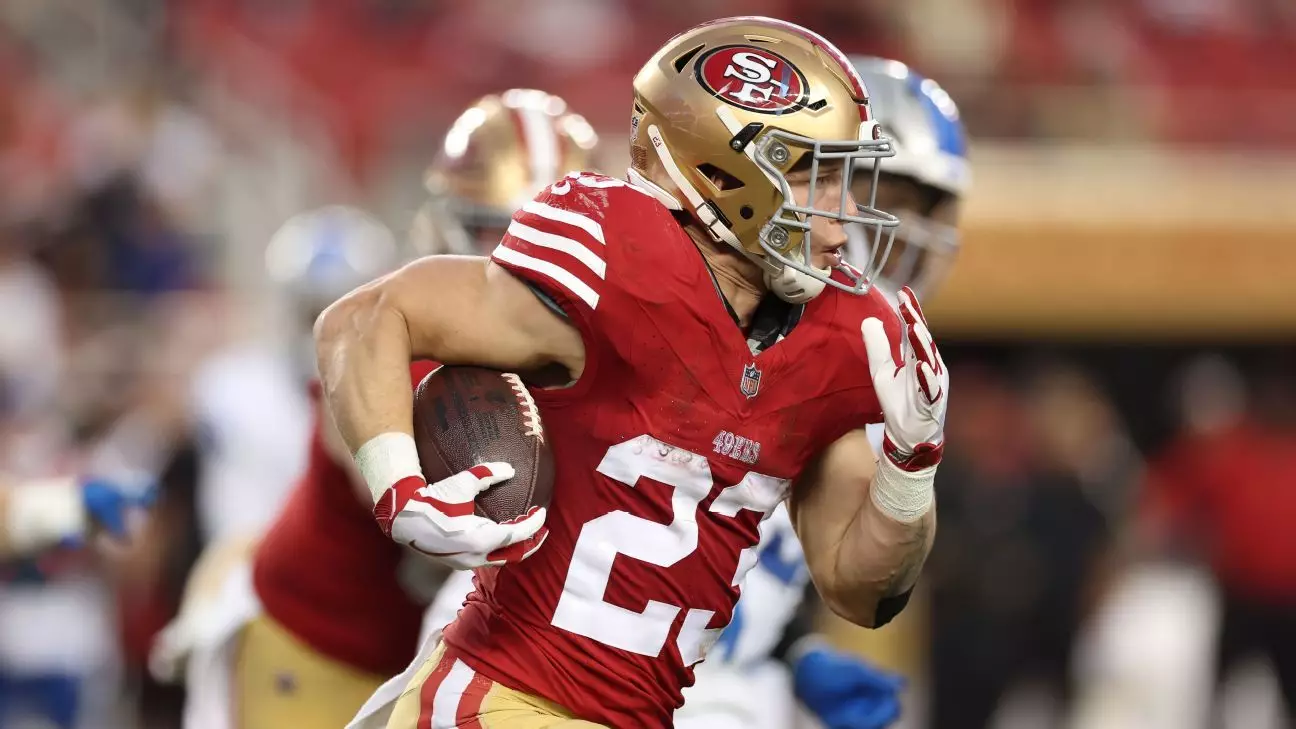In a highly anticipated announcement, the San Francisco 49ers officially activated Christian McCaffrey from injured reserve, clearing the way for his long-awaited season debut against the Tampa Bay Buccaneers. After enduring a challenging recovery process due to bilateral Achilles tendinitis, McCaffrey’s return is not just an essential boost for the team’s offense but also serves as an uplifting narrative amid a somewhat tumultuous season. Coach Kyle Shanahan’s assertion that only “something crazy” could hinder McCaffrey’s flight to Tampa encapsulates the team’s confidence, and fortunately, no such chaos occurred.
McCaffrey’s absence over the first eight games undoubtedly weighed heavily on both his own ambitions and the 49ers’ overall performance. Reflecting on his time away from the field, McCaffrey articulated a sobering realization: “Sometimes you take it for granted that you play this game for a living.” This statement underscores a core aspect of sports: the fragility of athletic careers and the appreciation that comes from overcoming adversity. For many players, injury isn’t merely a physical hurdle; it mentally redefines their commitment and love for the game, compelling them to cherish each moment they spend on the field.
Roster Dynamics: Implications of McCaffrey’s Activation
The 49ers’ decision to waive Patrick Taylor Jr. to make room for McCaffrey on the roster highlights the strategic maneuvers teams must undertake in managing player development and depth. With McCaffrey rejoining the lineup, the 49ers maintain a robust running back corps, now featuring backs such as Jordan Mason, Isaac Guerendo, and fullback Kyle Juszczyk. This infusion of talent could potentially elevate the team’s ground game, which is crucial in their quest for playoff contention.
Moreover, McCaffrey’s presence will no doubt help alleviate some pressure from other key players. Notably, wide receiver Deebo Samuel’s anticipated return bodes well for the offensive strategy. Samuel’s ability to stretch the field and create mismatches allows for improved pass protection, thereby optimizing the run game led by McCaffrey.
McCaffrey’s rehabilitation journey was not merely a matter of physical recovery; it involved meticulous planning to ensure that he could return to the field without risking further injury. His trip to Germany to consult with a specialist illustrates the lengths to which he and the organization went to safeguard his health. Together with extensive treatment plans, McCaffrey’s proactive approach to rehabilitation emphasizes the modern athlete’s growing awareness of the intricate balance between health and performance.
The running back expressed his gratitude for the unwavering support from the 49ers’ management and medical teams, praising their foresight and commitment to his well-being. In today’s high-stakes sporting culture, it is vital that players feel they are supported not just as athletes, but as individuals. McCaffrey’s acknowledgment of the organization’s role in his recovery encapsulates a team’s critical role in nurturing athlete welfare.
As McCaffrey steps back onto the field, the anticipation is palpable not just among fans but within the locker room as well. His skill set adds a new dimension to the 49ers’ offense, which may translate into improved performances in the weeks leading to the playoffs. Such a holistic embrace of talents could make the 49ers not just contenders but formidable challengers within the league.
The activation of Christian McCaffrey symbolizes more than just a return from injury. It represents a catalyst for the 49ers’ aspirations, offering hope and excitement for fans and players alike as they navigate the rest of the season. As we witness McCaffrey’s comeback, it is a poignant reminder of the resilience embodied by athletes in professional sports and the enduring human spirit that thrives in the face of adversity.

